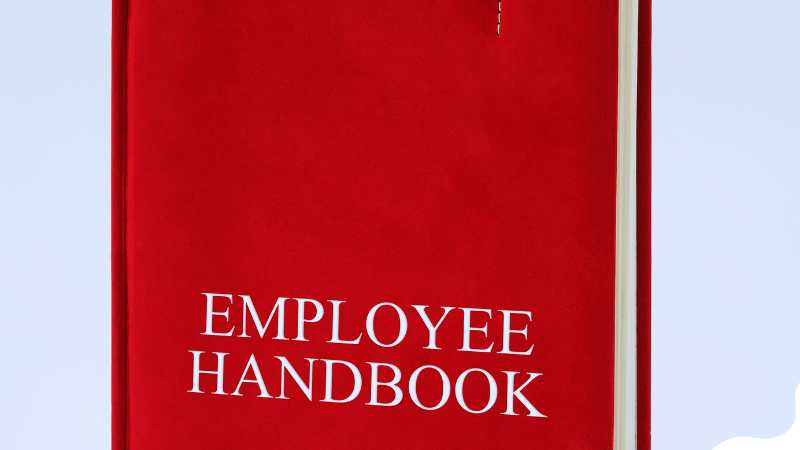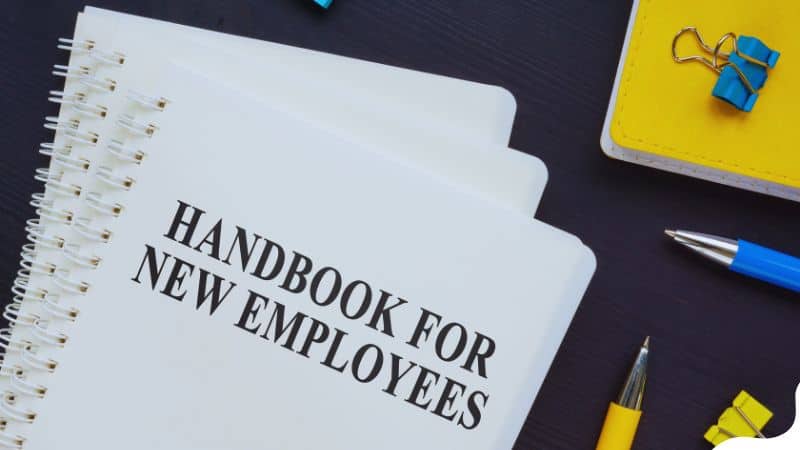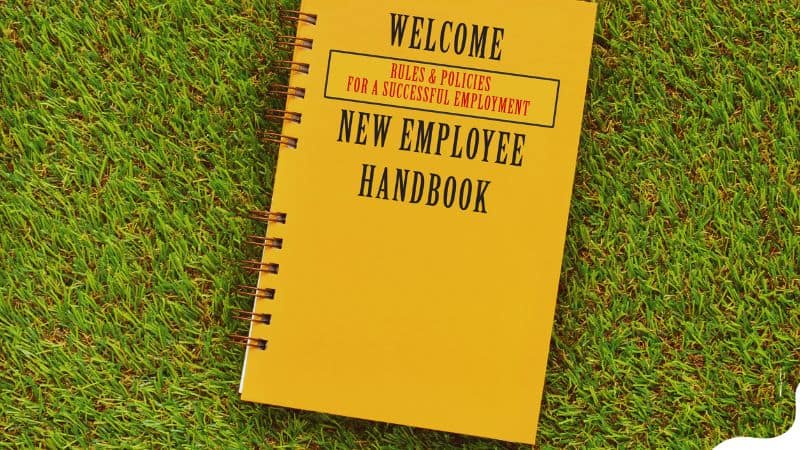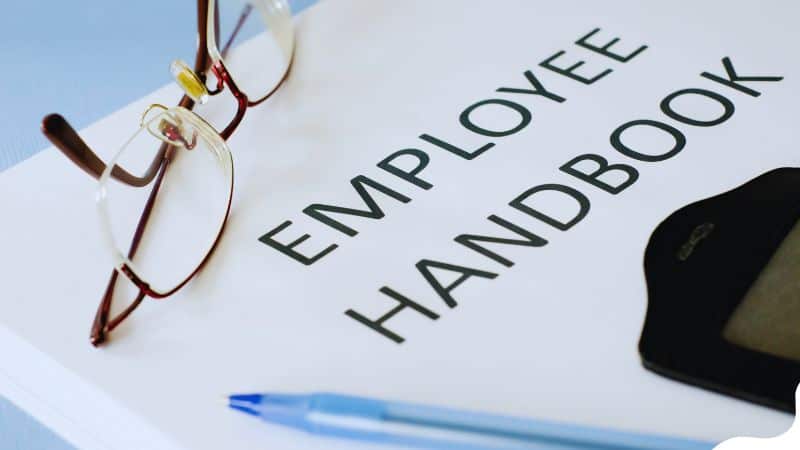Be honest. When was the last time you actually read your company’s workplace policies?
If you’re like most people, the handbook is something you skimmed on your first day—and never touched again.
HR might keep updating it. Managers may quote it when there’s trouble. But for most employees, policies feel like background noise—rules written somewhere in a binder or a Google Drive folder.
Here’s the problem: a policy that nobody lives by is worse than no policy at all.
It creates a false sense of security. Leaders assume people “know the rules.” Employees sense hypocrisy when rules are ignored. And culture slowly erodes.
That’s why this chapter is not about writing more policies. It’s about creating workplace policies that actually work.
What Workplace Policies Are Really For
Most companies see policies as compliance documents. Something you need in case the government asks for it.
But think about it this way:
👉 Policies are promises in writing.
A good policy does three things:
- Protects the people and the organization from harm.
- Promotes values and behaviors you want to see.
- Prevents chaos, conflict, and costly mistakes.
A bad policy? It just fills up paper and frustrates people.
So before writing anything, ask yourself: What promise are we really making here?
The 3 Ps Framework: Protect, Promote, Prevent
Let’s make this practical. Every policy you write should do at least one of these three things:
- Protect – Ensure safety, fairness, and legal compliance.
Example: Anti-harassment policies that make people feel safe at work. - Promote – Encourage behaviors that strengthen culture.
Example: Flexible work policies that show trust while demanding accountability. - Prevent – Stop small issues before they turn into big disasters.
Example: Clear conflict-resolution steps before problems escalate.
If a draft policy doesn’t Protect, Promote, or Prevent? Delete it.
Why Most Policies Fail (and Feel Pointless)
Let’s be real. Most policies fail because:
- They’re written for lawyers, not employees.
Nobody talks in legal jargon. If a frontline staff can’t explain your policy after reading it once, it’s useless. - They’re copy-pasted from templates.
Generic rules that don’t reflect your company’s reality never stick. - Leaders don’t model them.
If the boss ignores the rules, everyone else will too. - They’re outdated.
A social media policy written in 2010? Irrelevant today. - They’re hidden away.
A handbook in HR’s drawer is not a living document.
Sound familiar? Then it’s time to change how you write policies.
What Good Policies Look Like
| Aspect | Good Policy | Bad Policy |
|---|---|---|
| Clarity | Simple, human words | Legal jargon and vague phrases |
| Purpose | Explains the why | Only says “do this or else” |
| Behavior | Defines specific actions | Leaves room for guessing |
| Connection | Tied to company values | Exists in isolation |
| Application | Enforced consistently | Applied only when convenient |
👉 Memorable line: A good policy guides action. A bad policy collects dust.
How to Write Policies That Actually Work
Here’s a roadmap you can use:
- Start with Behavior, Not Rules
Don’t begin by writing “Employees shall…” Instead ask: What do we want people to do differently? - Use Plain Language
If your new intern can’t explain it, rewrite it. - Anchor in Values
Don’t just say “no harassment.” Say: “Because we believe in respect, here’s how we treat each other.” - Co-Create with Employees
Policies built with people, not for them, are more likely to be followed. - Test Before Finalizing
Run scenarios. Ask: What happens if…? Adjust if your policy doesn’t work in the real world. - Train and Model
Leaders must be the first to live it. Otherwise, the policy is dead on arrival. - Review Regularly
At least once a year—or whenever work conditions change.
A Tale of Two Companies
Let me share two real stories from Filipino organizations.
Company A banned social media during work hours. They rolled out the policy through an email blast. Leaders ignored it. Employees found workarounds. Within a month, the policy was dead.
Company B introduced a “work-from-anywhere” policy. Instead of imposing it, they co-created it with employees. They tied it to accountability measures. Leaders celebrated teams who used it well. Trust went up. Attrition went down.
Same country. Same workforce. Different approach.
👉 Lesson: Policies succeed when they match reality, values, and leadership behavior.
Policy Writing Checklist
Here’s a quick test before approving any policy:
- Does it Protect, Promote, or Prevent?
- Can employees explain it in one sentence?
- Does it reflect our values?
- Were employees consulted?
- Is it easy to find and easy to use?
- Do leaders model it?
- Is there a schedule to review it yearly?
If you checked fewer than five boxes—rewrite it.
FAQs About Workplace Policies
Q: How often should policies be updated?
At least once a year—or whenever laws, technology, or work culture changes.
Q: Should we use free templates online?
Yes, but only as a starting point. Customize to your culture.
Q: How do we make people actually follow policies?
Leaders must model them. People follow behavior, not binders.
Q: What if employees resist new policies?
Involve them early. Resistance comes when rules are imposed, not co-created.
Q: How many policies do we need?
Enough to protect, promote, and prevent—but not so many that people feel micromanaged.
Why This Matters for Leaders
Policies are not just HR’s job. They’re leadership tools.
When leaders ignore policies, employees lose trust. When leaders model them, employees align. That’s why writing good policies is inseparable from leadership training.
👉 If you’re serious about building policies that people live by, not just sign off on, join our Leadership Training programs.
I’ve worked with organizations in the Philippines, Singapore, Malaysia, and Indonesia. Across all these workplaces, the same lesson holds true: policies succeed when they are clear, consistent, and connected to values.
I’ve seen companies transform simply by rewriting outdated rules into clear, lived promises. Employees became more engaged. Leaders felt less like policemen and more like guides. Culture shifted.
This is the kind of shift I help organizations design—through workshops, playbooks, and leadership training.
Policies as Cultural Tools
Workplace policies are not meant to be forgotten handbooks. They are cultural tools—promises in writing—that protect people, promote values, and prevent chaos.
If your current policies aren’t working, don’t create more. Write better ones. Test them. Live them. Make them part of your culture.
And remember: a policy isn’t alive until leaders breathe life into it.👉 Next Step: Explore our Team Building Workshops and Leadership Training Programs to design policies—and cultures—that actually work.
Sample
Chapter 5: Workplace Policies
Work Hours and Overtime
Our standard work hours are from 8:00 AM to 5:00 PM, Monday to Friday, with a one-hour lunch break. Overtime may be required depending on business needs and must be pre-approved by your supervisor. Overtime pay will be calculated according to Philippine labor laws.
Breaks and Rest Periods
Employees are entitled to a one-hour lunch break, typically between 12:00 PM and 1:00 PM. Additionally, two 15-minute coffee breaks are provided—one in the morning and one in the afternoon. These breaks are essential for maintaining productivity and well-being.
Remote Work Policy
Remote work is permitted on a case-by-case basis, subject to approval from your department head. Employees working remotely must remain accessible during standard work hours and are expected to maintain regular communication with their team. Remote work days should be scheduled in advance whenever possible.
Health and Safety Protocols
Your safety is our priority. [Company Name] adheres to all safety regulations and protocols. Employees are required to follow all safety guidelines, including wearing appropriate protective gear when necessary and reporting any hazards immediately to the Safety Officer. In case of emergencies, follow the evacuation plan posted in common areas.
Anti-Harassment and Discrimination Policy
[Company Name] is committed to providing a work environment free from harassment and discrimination. We have a zero-tolerance policy for any form of harassment or discrimination based on race, gender, age, religion, sexual orientation, or disability. Any incidents should be reported to HR immediately, and all complaints will be investigated thoroughly. Violations of this policy will result in disciplinary action, up to and including termination.
If your team is stuck in meetings, misalignment, or slow decisions…
Let’s design one shift they can use immediately.
→ Shift Experiences










